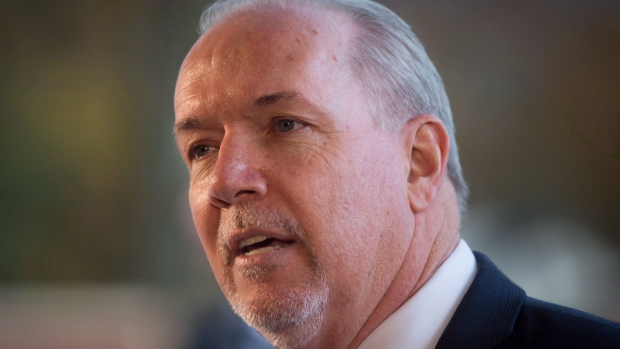Feb 2, 2018
‘I don’t see what the problem is’: B.C. Premier Horgan baffled over Trans Mountain uproar
, BNN Bloomberg

B.C. Premier John Horgan is in shock over Alberta’s response to his province’s oil spill proposals.
“I’m surprised by the response we are getting from Alberta,” he told reporters Thursday, noting he briefed Premier Rachel Notley and Prime Minister Justin Trudeau about British Columbia’s intentions.
“I don’t see what the problem is,” he added. “It’s within our jurisdiction to put in place regulations to protect public interest. And that’s what we’re doing.”
Horgan also pointed out that his proposals are just that – and nothing is official yet.
“We’re consulting widely on these regulations,” he said. “We have not put in place anything at this time. We are going to put in place a scientific panel to look at the potential consequences of a catastrophic spill. I don’t think that’s unreasonable.”
Horgan’s government put forth five proposals this week intended to limit risks tied to oil sands spills, including one to restrict the increase in shipments of diluted bitumen through the province.
- 'That pipeline is going to get built': Trudeau dismisses B.C.'s Trans Mountain move
- 'Whatever it takes': Alberta suspending B.C. electricity talks as Trans Mountain rift deepens
- ‘I'm pissed’: Brett Wilson slams B.C. over oil sands threat, cheers Notley
READ MORE: PIPELINE POLITICS
His explanation came the same day Alberta Premier Rachel Notley announced she was suspending talks with British Columbia on the purchase of electricity from the province as a way to fight her neighbour’s threat.
Justin Trudeau reaffirmed his own support for Kinder Morgan Thursday night at a town hall in Edmonton as the raging debate over the Trans Mountain pipeline expansion project continued to heat up.
During the meeting, he faced a question about Canada’s inability to ship its own oil globally.
Trudeau responded by stressing the need for Canada to get its resources “safely and securely” to new markets.
“The fact that we are trapped in the North American – or American – market with the differential of $20 or $25 is causing huge strain on the Albertan economy and on the Canadian economy,” he said. “We need to get our resources safely and securely to new markets. And that means the Kinder Morgan pipeline.”
Trudeau also spoke about the role pipelines play in Canada’s national interest.
“It is the job of the federal government to decide what’s in the national interest, he said. “And when it comes to energy and pipelines, the national interest is to make sure that the environment and the economy go together.”



